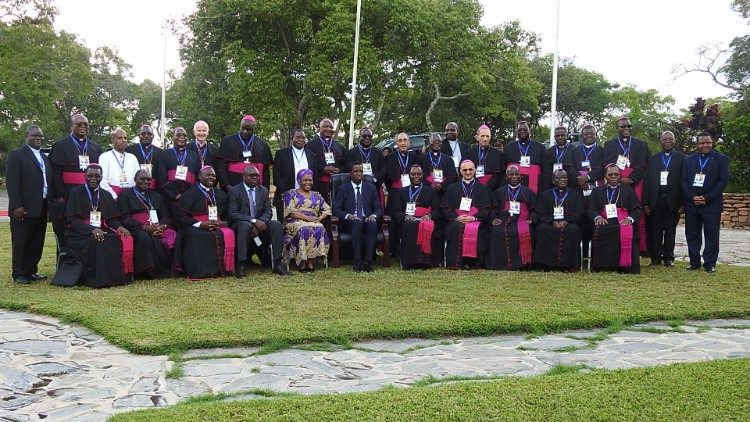The ancient biblical story of Naboth repeats itself every day. Wherever societies exist, the balance of rights and benefits must be maintained. Or else, the avaricious greed of the rich will rob the poor of their already scarce possessions and make them destitute.
By Peter Knox, SJ
We all know the phenomenon of the rich getting richer and the poor getting poorer. We may think that this is a sign of our particularly wicked times. But it is not a new phenomenon. In the fourth century, already, Christians were facing this problem, and Saint Ambrose had to address it head-on.
Yet the problem goes even further back, near the beginning of written Jewish history. In the story from the First Book of Kings in the Old Testament, King Ahab coveted Naboth’s vineyard, and when he could not buy it from him, Jezebel, his wife, had Naboth accused falsely of cursing God and the king, and then stoned to death, so that Ahab could take possession of the vineyard (1 Kings 21:1-16). We can date this story to about 2,900 years ago, when the prophet Elijah intervened and told King Ahab how wicked he was, and how God would punish him and Jezebel for their obscenity (cfr. 1 Kings 21:17-24).
A ‘communist’ Saint – One of the first principles in the Social Teaching of the Church is that God created the world to be shared by all people. In March 1967, St. Paul VI stated this principle, which goes all the way back to the early Fathers of the Church. In his encyclical Popolorum progressio – On the Development of Peoples, he wrote: “Everyone knows that the Fathers of the Church laid down the duty of the rich toward the poor in no uncertain terms. As St. Ambrose put it in his work De Nabuthae (“On Naboth”): ‘You are not making a gift of what is yours to the poor man, but you are giving him back what is his. You have been appropriating things that are meant to be for the common use of everyone. The earth belongs to everyone, not to the rich’. These words indicate that the right to private property is not absolute and unconditional. No one may appropriate surplus goods solely for his own private use, when others lack the bare necessities of life” (PP 23). Ambrose was stating the principle that would come to be known as the “Universal Destination of All Goods”.
We also read about the principle in the Catechism of the Catholic Church, which says: “The right to private property, acquired or received in a just way, does not do away with the original gift of the earth to the whole of mankind. The universal destination of goods remains primordial, even if the promotion of the common good requires respect for the right to private property and its exercise” (no. 2403).
What the Catechism is trying to do is to balance the principle of the universal destination of goods with the right to own private property, which is another principle upheld by the Social Teaching of the Church. Maintaining this tricky balance is what social justice is all about: ensuring the maximum benefit to the greatest number of people, without infringing on anybody’s rights. It requires the wisdom of Solomon!
Social mortgage on private property – In his encyclical Laudato Si’ – On Care for our Common Home, Pope Francis writes: “The subordination of private property to the universal destination of goods – and thus the right of everyone to their use – is a golden rule of social conduct and ‘the first principle of the whole ethical and social order’” (no. 93). Here Francis is quoting St. John Paul II in his encyclical letter Laborem Exercens – On Human Labour (no. 21). It is clear where they both are saying the balance should lie: in favour of the majority rather than the minority.
Unfortunately, the right of individuals to own private property is often over-stressed, particularly in capitalist societies, to the detriment of the rights of the masses of poor people. People regard their private property as a reward or entitlement, and are not willing to compromise on it, even if they see people starving or destitute next door. St. John had this to say on this situation: “If someone has material possessions and sees a brother or sister in need but has no pity on them, how can the love of God be in that person?” (1 Jn 3:17).
What is worse is when people take what is not theirs, to which they have no natural right, or what clearly should be a shared resource – like forests, lands, water, coastlines… – and use it so badly that nobody can make use of it again. Sometimes people damage the landscape so badly that it will take generations to recover – if ever.
Alluring titanium – A prime example is natural forests, in which trees grow slowly and need to be seeded with the right types of seeds. Foreign-owned companies in South Africa wanted to mine the very sensitive coastal forests in Kwa Zulu-Natal for titanium. All they could see were the dollar signs and promises of huge profits. They could not see that they would be damaging a very sensitive coastal ecosystem. They promised many jobs and assured to restore the forests on the coastal sand dunes, once they would finish extracting the precious metal, either ignoring or trying to hide the fact that it takes hundreds of years for these forests to reach their stable climax state. All know that the forests hold the dunes in place. Once they are gone, the dunes can be washed away, and the sea invades kilometres of fertile land, making it impossible to use.
In this instance, the South African government listened to the protests of thousands of people and blocked the mining company’s plans. But for how long? How long before a crooked official disregards his or her duty to uphold justice, and quietly signs a permission for mining to begin?
I wonder whether you have come across examples like this in your own experience. Surely, the issue of profit for petroleum companies versus preserving the universal good of a stable climate is the same tension played out on a global scale.
So, social justice is not something that only applies to individual countries or within regions. It applies to trade relations that cover the entire world. Wherever societies exist, the balance of rights and benefits has to be maintained.












